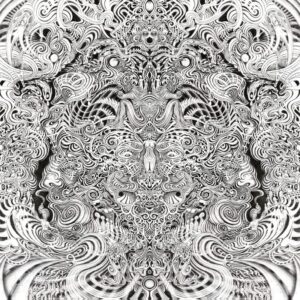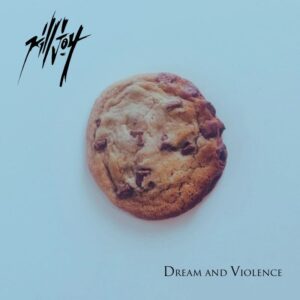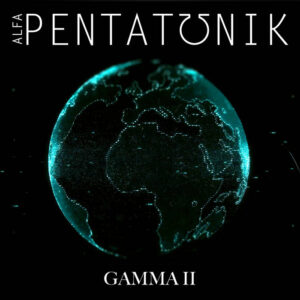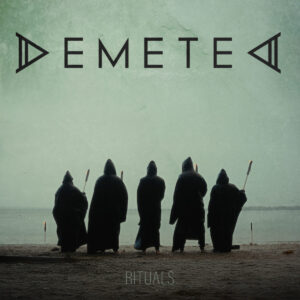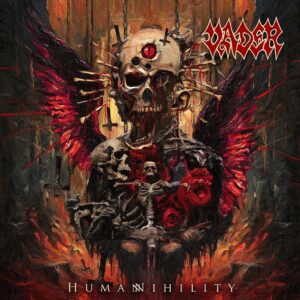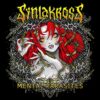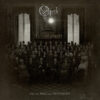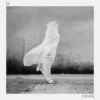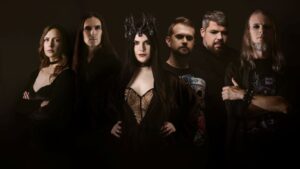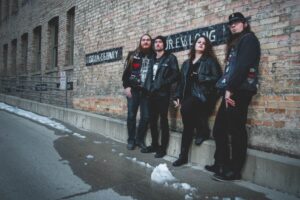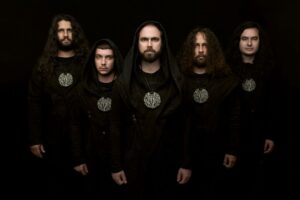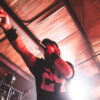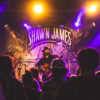BOB KULICK: "Feeling is the most important thing; I would sacrifice technique for feeling any day. What feels great is more important than the technical aspect of it. Knowing musicians don't hear technique, they feel it."
September 7, 2017
The road to musical eminence is a tough one to pave, and yes, there are natural-born stars that are destined to blow up, but behind every supernova is a reaction that makes its existence possible, the foundation of its incendiary power!a catalyst of greatness.
Not all such greatness is found on the front line, and in music it is often the toils of those behind the curtain that help a composition reach its full potential and shine above the rest. Over the course of his musical journey BOB KULICKhas added his touch to many a record, providing sonic foundations for names like KISS, W.A.S.P., Lou Reed and Diana Ross, and after decades of assisting these artists in delivering their melodic visions, the legendary guitarist has finally decided that it was time to add a solo opus to his illustrious resume ' "Skeletons In The Closet" is due out September 15th via Vanity Music. In light of said news Metal Temple staffer Anton Sanatov had recently taken the opportunity to speak with Bob about his new record, the importance of teamwork, the difficulties of being a session musician and the evolution of guitar playing.
This is quite exciting, for after all these years it appears that we are finally going to get a Bob Kulick solo album. Why do you think it took so long for it to see the light of day and what can we expect from it?
Well, I've never been somebody who was solo-oriented, I was always a team player - I mean, I love baseball, because in a team sport everybody achieves more. However, in this instance, after all the projects, production ventures, bands and recordings that I've done, it just seemed to me that I wanted to do something that was new, and to that extent I was able to put four new original songs on "Skeletons In The Closet" - alongside a cover song "Goldfinger" ' and then adding to that the retrospective of some of my favourite "nuggets" from the closet" so to speak. It seemed like this would make an actual CD that would be something that I could be proud of, and something that people would like.
After so many years of playing on other artist's records, does it feel liberating to finally release an opus of your own?
Umm!in it's own way. Like I said, being a team player I'm always looking for collaborations, and in this case I have been very fortunate in that the 23 guest artists that are on this CD are all top-of-the-line people, so even the guys that are on the retrospective songs are no less than the guys on the new songs. I really feel like I got the best of both worlds, the best of being able to put together these boutique bands for each of these songs (the five new songs) and in this way put together bands that I would be the leader of - a leader of bands with Robin McAuley, Dee Snider, Todd Kerns, Vinny Appice, Frankie Banali and Brent Fitz; and all of these guys that are on here are my friends, they're people that I've worked with before, so it was a fun project.
This year also marks the anniversary of W.A.S.P.'s "The Crimson Idol", one of my favourite records and one to which you famously contributed your guitar talents. What was it like working with Blackie Lawless on his conceptual opus and what did you take away from that experience ' for from what I understand it was quite a difficult one at times?
It was a difficult experience in that Blackie Lawless, having a band, was really a solo artist. At that point, when Chris (Holmes) was no longer in the band, it was basically Blackie's thing under the moniker of W.A.S.P. He always came out with a band and so everybody viewed it as a band, but in reality it was his thing, and so he was very specific about what he wanted. I had a great time playing all those solos on "The Crimson Idol" - "The Idol", "Chainsaw Charlie" and some of those other tunes, including "Hold Onto Your Heart". Being two New Yorker we really bonded well, but you know, it was difficult in that he had a definite idea of what he wanted. He let me play what I wanted to play and he would let me know what he liked and what he didn't like, and fortunately it turned into something special. What I learned about that was the reinforcement of what I had felt, which is that having a team is better than being a solo artist, and in this case, I am a solo artist but I still have a team behind me.
What is your favourite song off the album?
Definitely "The Idol". There are two one-minute solos that are, to me, some of the best playing that I've ever done. You know, musicians talk about the groove of a song, how the notes can sit inside there for whatever reason and I guess that my David Gilmour approach to it was exactly what he was looking for and hence that solo kind of sores above all the other stuff that I've done.
I really love that song so thank you for that.
Me too, me too, and you know, under other circumstances I would've been in the band, but as it was it wasn't meant to be, but the record lives for us to talk about, so that's something good.
This summer saw the premiere of the documentary "Hired Gun", which explores the lives and legends of session musicians. Would you say that session work is a calling in its own right?
Yes, because not everybody is capable of being the kind of artist that can just take direction. I would do sessions and a lot of times, like I was saying with Blackie, there was some direction and then there was just "go for it". In other sessions that people do somebody writes out a chart and highlights what they want you to play. You know, the guys in the "Hired Gun" movie, guys like Rudy Sarzo, they're rarely told what to play, because people really just dig them for what they are, they're great players and they're able to adapt, but the true session guys back in New York, back in the day, the stuff that I did when I played with Diana Ross, with KISS, for that you really had to have a smile on your face and try everything that they asked you to try, and that definitely was a unique slant on being a musician. Sometimes you'd know that they were barking up the wrong alley, but you still continued anyway because it was their record and this is what they wanted.
So in a way it can often be even tougher than leading/playing in your own band?
Yes, and the main reason is that as a session person you're fulfilling a part on a song that somebody else could do; so essentially they could've gotten somebody else. It's not a band where you say "yeah, that's awesome, let's just do this", with session work you are hired to play for somebody else, and knowing that they could've gotten somebody else I was always very flattered that they hired me.
What is your favourite record that you have worked on?
Well!this is my favourite record that I've worked on, because it has new stuff that I'm still excited about, and because it has, like I said, the retrospective songs, the songs that I felt got missed, ones that nobody really paid attention to but were worthy of another listen, but I've been on some great records. The Paul Stanley solo record was definitely one; that was a great record. The WA.S.P. record was certainly one, the Lou Reed record that I did ("Coney Island Baby"), the song that Dave Eisley and I performed, produced and wrote for Spongebob (the "Sweet Victory" song) - that was one of my favourite things that I've ever done - so you know, I have a list of things that I fell really good about; also, producing MOTORHEAD's "The Game" as a theme for Triple H was something that I was really proud of. But this record would still have to be my favourite, because it has some of my favourite people on here and because of what it is, it definitely fills that void. I can still listen to it and love it, and that's really great.
What was your toughest gig?
Umm!toughest gig!some of the sessions that I did with KISS were intensive, but rewarding. Toughest gig may have still been Blackie. That was certainly a difficult situation just in terms of trying to give the guy the best, and him taking his sweet time about doing it, but you know, the proof's in the pudding and it turned out great, and that's the bottom line.
Do you ever listen to your old works and dissect them, picking out parts that you would do differently?
I used to do that!I don't anymore. You know, continuing to be able to make music allows me to make up for all the things that I thought I could've done better.
What is your guitar playing philosophy?
My guitar playing philosophy is that one should be able to play what they need, and I think that's been a good motto for me in that I incorporate many styles and so I'm able to play this that and the other, and I think that a lot of guys they just want to play Metal and that's all, or they want to be Folk singers and learn finger picking. I learned all of it, and this way when it was time to play with LaBelle or Diana Ross back in the day, I was able to play that stuff, R&B stuff, because I'd learned how to play it, and as far as the Metal stuff, that was more of my wheelhouse, so that was never an issue, but I've played on a variety of things, some Pop stuff, records of people like (Frank) Sinatra, where there were sophisticated songs that required knowledge of Jazz chords and stuff like that, and I was also pretty well-versed in that as well, so I would say: learn your instrument and never stop learning.
Are you still learning new things?
Always; even the other night when I got up and played with Alice Cooper's band up here in Las Vegas. It was a big jam session and party, and you know, just getting up and jamming you learn something about some of the technical aspects of what's going on. Anybody who thinks that they can just stop learning and they've got it all, they're wrong; it's always a learning experience. When I first started out as a player, and most people know this, I was lucky enough to play at the Café Wha (New York's Greenwich Village) with my "baby band" (RANDOM BLUES BAND) Back in the day Jimi Hendrix used to play that club, he was Jimmy James and the Blue Flames back then, and I remember he sat in front of us once when I was in the RANDOM BLUES and watched us play, and I remember after the second song I felt so uncomfortable that I leaned down and I said: "You know, it's really uncomfortable to have you sit right here and watch us play". Then after the show he came up to me and he said: "I just want you to know something, I learn something from every band that I watch play". And I was like: "What could you possibly learn from us?" And he was just like: "Even if it's what not to do, you learn". And I thought that if somebody like Jimi Hendrix could say that, then everybody should feel that way.
What comes first technique of feeling?
Feeling is the most important thing; I would sacrifice technique for feeling any day. What feels great is more important than the technical aspect of it. Knowing musicians don't hear technique, they feel it.
What was the greatest difficulty that you've had to overcome as a guitar player?
(Pauses) Umm!interesting! I'll have to say that probably those circumstances where I was put into a position of having to play what somebody else played and to make it sound like them. So when I had to imitate my own brother, on the Paul Stanley tour, that was a lot of pressure and that was difficult. Being used to playing my own stuff, having to play something that is signature to somebody else was something that was challenging for me.
You'd gotten to witness the evolution of guitar playing, would you say that it has advanced in the right direction?
Good question. I would say that in certain way yes and in certain ways no. Yes in that there are some incredible players out there. I've had the opportunity to work with some younger guitar players lately and I see that they're more hung up sometimes on the technique and the solos than they are on learning the chords and coming up with new permutations of progressions and songwriting ideas or patterns to play over. I think that a lot of people think that being online and showing yourself shredding like Randy Rhoads is the ticket, and there is something to be said if someone can actually play like Randy Rhoads, but knowing how to write a song like Randy Rhoads, knowing how to play rhythm guitar like Randy Rhoads, that's as big a part of it as showing off to your friends that you can play some spectacularly fast lick.
Are there any of these younger players that you are particularly fond of?
I've just worked with this fourteen-year-old protégé, this kid Jacob Reese Thornton, and he is a real talent; a really fine guitar player and somebody who did take the time to learn those chords, and he wrote some really good songs. So that was something special to me, to be involved with and to work with, but as far as some of the bands that are out there - ones that I see on TV, hear on records or see here in Vegas - there is indeed a lot of great young talent out there, it just needs nurturing, it just needs to grow. Because if nobody takes the places of the guys that we are talking about, then there won't be another generation to love guitar playing like we do.
Would you say you would've had the same success as a guitar player if you were starting out today?
No, I would say that I would have no success as a guitar player if I were starting out today. The world is a totally different place, so it is very different for some kid to have a career that's starting out now, of course there's still stuff being done, but it's a much tougher road now. There is a lot less records being done, a lot less circumstances and a lot less money going around, so it's definitely more difficult now.
Do you have any musical regrets?
(Pauses and offers a long introspective sigh.) My musical regrets lie more among the lines of things that I didn't do or didn't say than stuff that I played. I'm very happy with my career, I wouldn't trade places with anybody, and now that I have my solo record, all of those feelings that you've just brought up, of what could've been and what might've been, fade away now that I'm sitting here and talking to you about my record and looking at the CD and feeling that I've accomplished something that was very important for me to see through. And to that end, my girlfriend who encouraged me despite my fear of doing this, despite my feelings of inadequacy, to be able to come up with something that could please me, something that I could feel good about, that's what a lot of this was about, the strength to feel good about myself, and then to realise that I was making some great music with some great people, to realise that people would like this as well, and that this would make up for some other regrets, some of the stuff that I didn't do in my life.
Well, I think it's best that we finish on this note.
I think you're right. Great interview and thank you.
Thank you Bob and good luck with the record.
Source:
More results...
